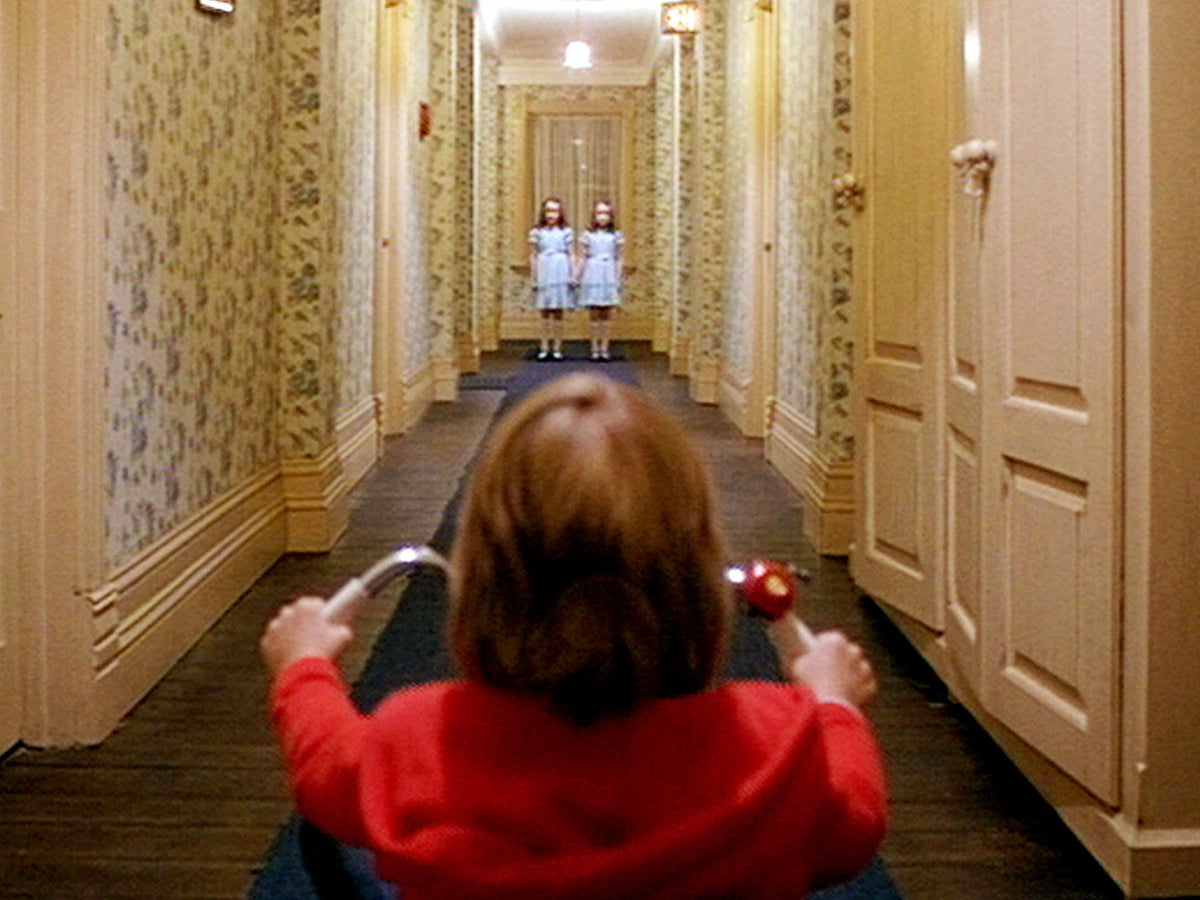J CUT-the audio from a following scene overlaps the picture from the preceding scene.

L CUT- when the audio carries on from one scene to the next.
J CUT-the audio from a following scene overlaps the picture from the preceding scene.

L CUT- when the audio carries on from one scene to the next.

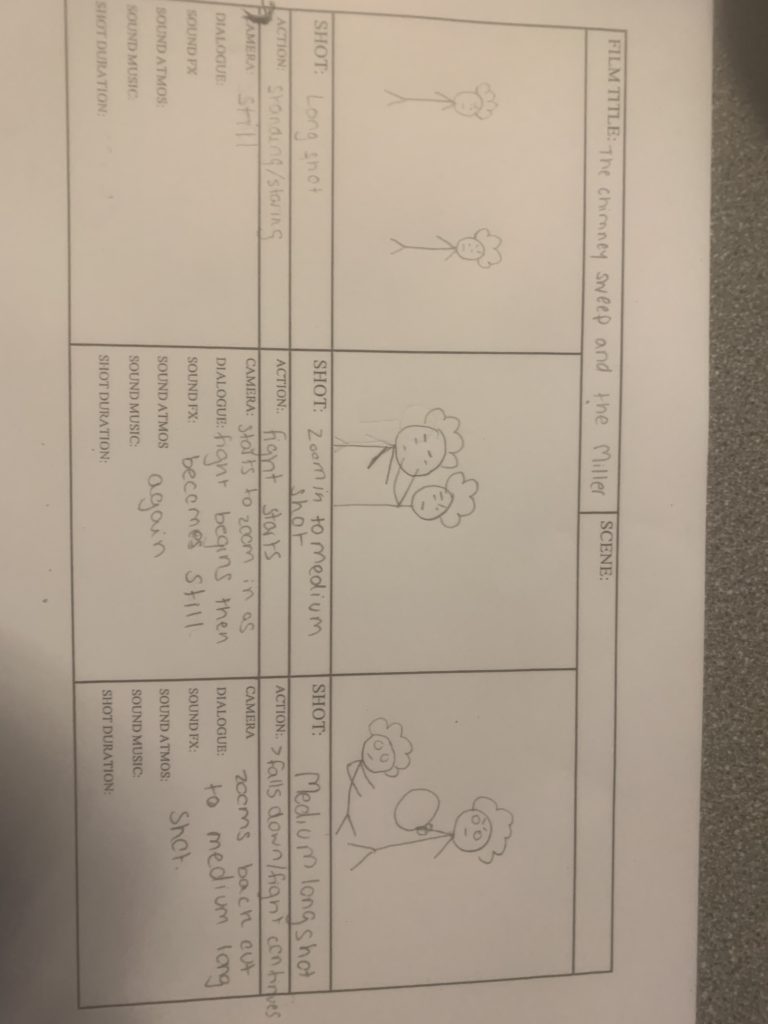
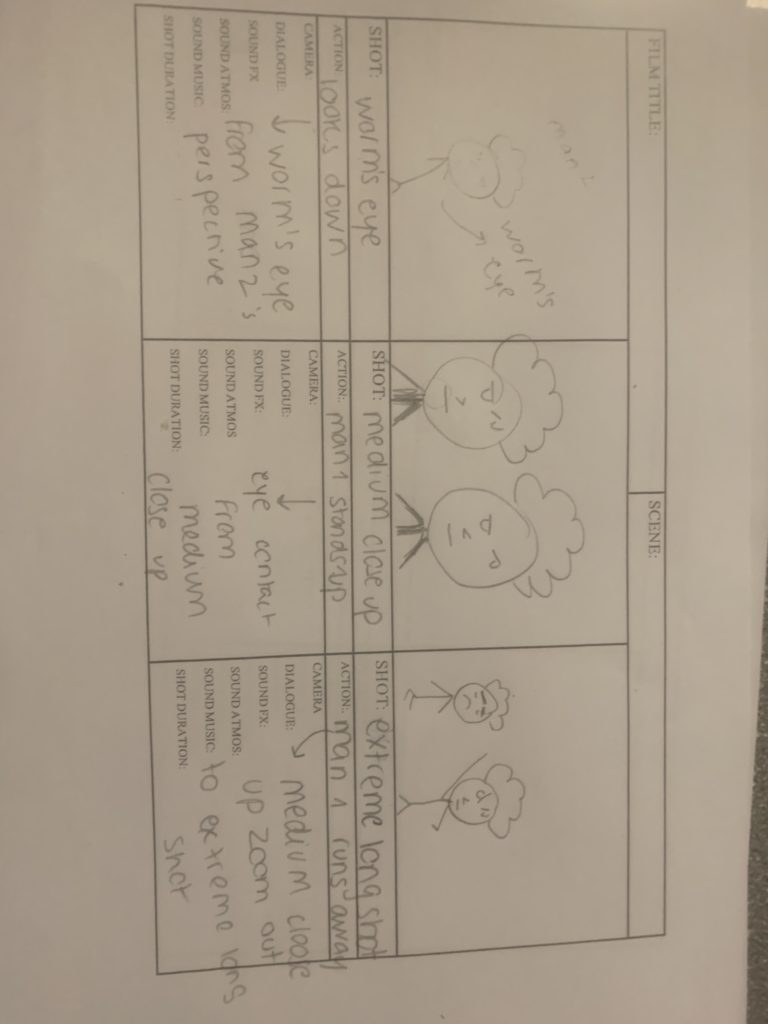
The joining up of one shot with another in order to picture events and props in different places and times.
Score: 9/10
Film element focus: Cinematography
Memorable scene: opening car scene with the family together.

| Shot Nm | Shot Type | Shot Angle | Shot movement | Notes |
| 1 | ECU to MCU | Cantered angle | Zoom out to MCU | Tears in his eyes Continuous laughter |
| 2 | MS from the side looking at Joker and Social Worker | Eye level | Still | |
| 3 | Close up of Jokers face, side profile | Eye level | Still | When Joker begins to speak |
| 4 | Cut to close up of SW face | Eye level | Still | “Its certainly tense…” |
| 5 | Cuts to Jokers face | Eye level | Still | |
| 6 | LS looking down from corner of the room | High angle | Still | “Could ever work in an office” |
| 7 | MCU of Joker | Eye level | Still | |
| 8 | Cuts to ECU of SW smiling | Eye level | Still | |
| 9 | Cuts to shot of SW writing on paper | Birds eye view | Still | |
| 10 | MS of Joker looking down on the piece of paper | Eye level | Still | |
| 11 | ECU to SWs eyes looking across the room to the clock | Eye level to High Angle | Pans to clock on wall |
LOCATION: Ms. Bedward’s Office
ACTORS: Mia Marcondes, Iona Hendry & Maria Gheorghe
DEPTH OF FIELD- this is the distance between the nearest and furthest objects in a scene that are in focus; this includes shallow focus which keeps one part of an image in focus while the rest is blurry and out of focus and deep focus which keeps all elements of an image in sharp focus to highlight all key activities in both the background and foreground.
Deep focus

Shallow focus
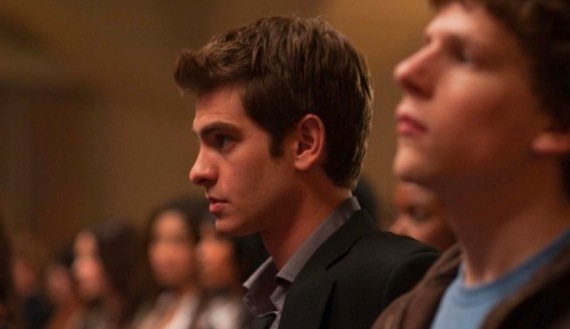
CAMERA MOVEMENTS-
PAN- a pan movement is when the base remains in a fixed position, but the camera pivots left or right. This is used to allow the audience to see more of the scene and see where the character moves. An example of this is in Wolf of Wall Street when the camera shifts to Jordan before he speaks. This causes the audience to focus on him and the background characters.
TILT- In Captain America The Winter Soldier, tilt is used in this scene to shift our attention on Steve walking in and highlight the importance of the situation which is indicated by their facial expressions; this camera movement is direct and spontaneous.

ZOOM IN – by using the zoom in effect the audiences attention is directed towards a specific point in the scene. In this scene from “American Horror Story- Cult” we are zoomed into Ally as her phobia of clowns starts to show. In this scene Ally finds her son’s Oz’s comic book of Twisty the Clown Chronicles and at that point the audience realiez her paralyzing fear that she is experiencing .
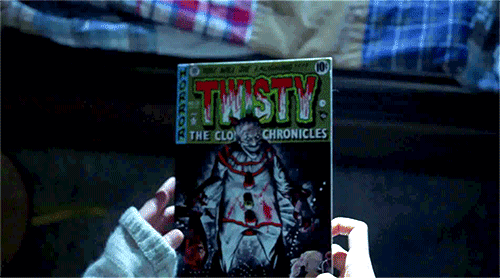
CAMERA ANGLES
LOW ANGLE- a low angle shot is used to emphasize on the power and danger that a character may have. This can be used to make another character seem dominant over the other and the effect this has on the audience is to make them view the scene through the inferior character’s eyes. An example of this is in “Home Alone 2” when Kevin sees Marv and Harry in New York. The low angle used in this scene puts Kevin in a vulnerable and inferior position causing the audience to feel frightened for him.
EYE LEVEL SHOT- an eye level shot is when the camera is positioned at a characters eye level. This scene from “The Hunger Games: Mockingjay Part 2” , is an example of an eye level shot that makes us focus on Katniss and wonder what her thoughts or next decisions might be. This scene is suspenseful as the shot focuses on Katniss’s cold gaze and eyes which appear full of rage and pain while she remains composed .

BIRDS EYE SHOT- this shot makes the subject appear small and powerless/isolated as it looks down directly on the subject. This type of shot is also used to give us more information about the surroundings in a specific scene. In this scene from Kill Bill: Vol 1 the birds eye view is used to give us more insight on what is about to happen while isolating our subject which might make the audience feel unsettled and fear the safety of our subject.
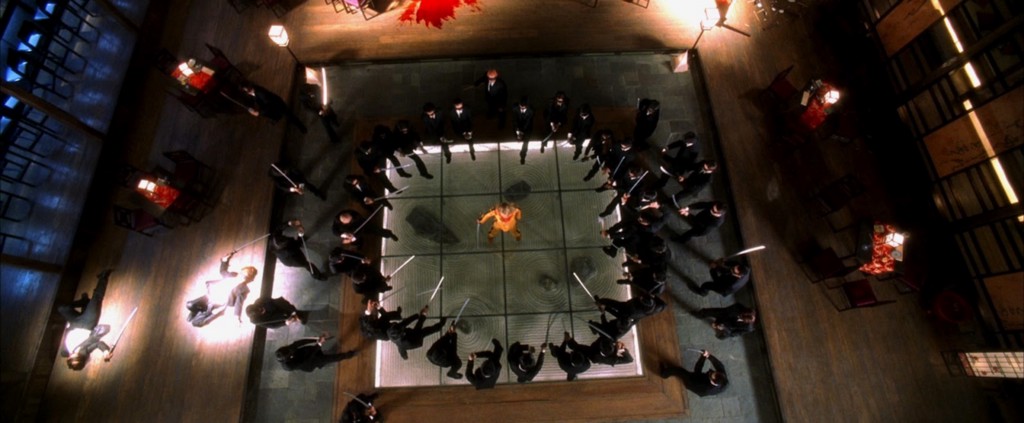
SHOT DISTANCES
CLOSE UP SHOT- close up shots are used to indicate that something is important and highlight its significance-they can be props or reactions. An example of a close up is in American Psycho when we are first introduced to Patrick Bateman’s routine. This scene gave me a sense of stability and order, but also made me feel uneasy and slightly uncomfortable as it appears quite unnatural. This is because most people don’t have the “perfect routine” and this is when Patrick’s psychopathic personality starts to peek through.

MEDIUM LONG SHOT- a medium long shot shows the character from the knees or hips up. This is used to show the character and its surroundings to reveal how they relate to their surroundings. In this scene from “Jennifer’s Body”, we are able to notice her outfit which represents her bright and girly personality while also acknowledging how confident she is by her posture and walk which give her a sense of power.

EXTREME LONG SHOT- this type of shot is used to make our character/s appear small compared to their location or far away from another subject. They are used to make the character seem distant and alienated. A good example of this shot is the twins scene from “The Shining”. The effect this has on the audience is to make Danny seem isolated and vulnerable and make them fear what will happen to him next.
